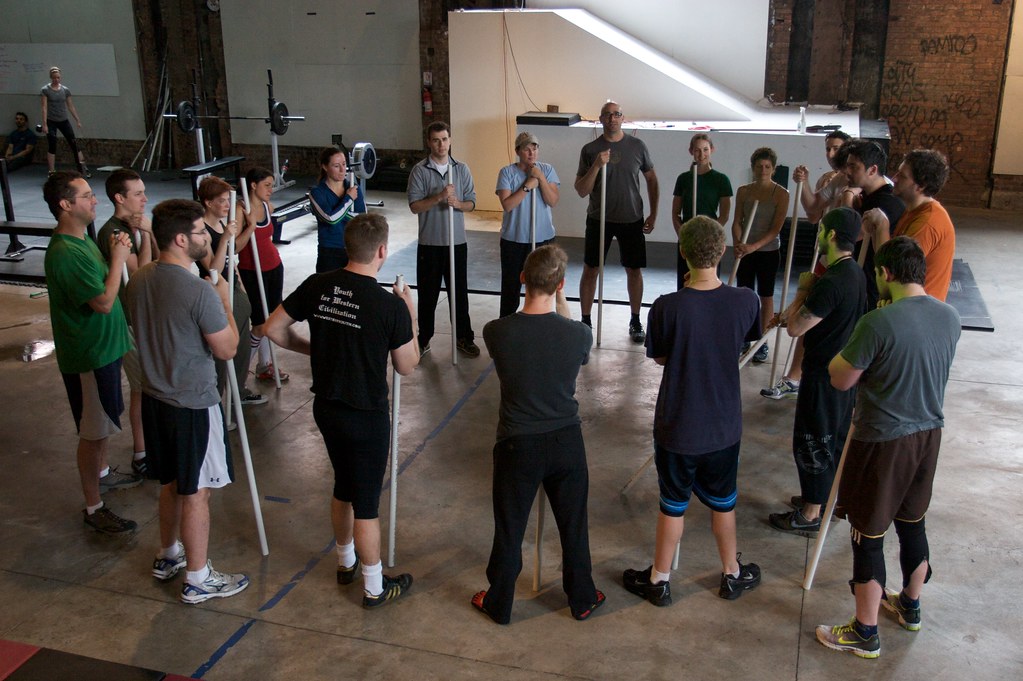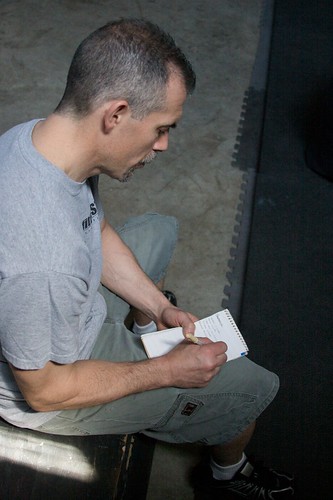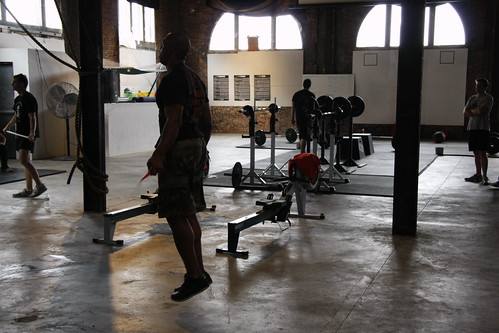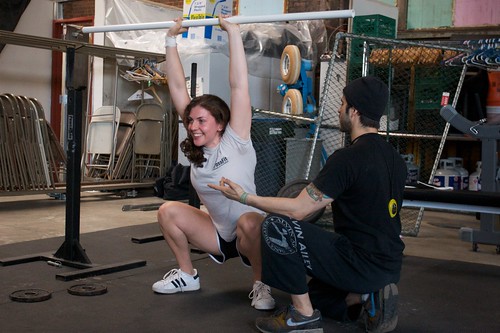
Inside the Affiliate’s first birthday was yesterday, and I’m proud to say that we’ve written over 50 articles, with almost 200,000 pageviews. Writing this blog has helped me connect with people from all over the world and even refined how I approach practices at my own gym. I originally got into CrossFit back in 2005, and continue to be thankful for the huge network of people and training philosophy that CrossFit provided, both of which served as a jumping-off point for me to build a successful business. As I’ve mentioned before, I started ITA in large part because I want to give something back to the community and create the resource I would have wanted back when I was starting out.
 As we’ve said in our article The Organic Affiliate Growth Model, one of the unique features of being a CrossFit affiliate owner is that you get to express your business however you see fit. Given this open model, there's potential for a Cambrian-esque explosion of diversity—in business practices, programming, uses of space, etc. Ideally, none of us hoard our best practices but share them, so we can all move forward and continue growing as a community. This form of collective learning allows all engaged coaches to continually evolve at a much faster rate than had we been doing things alone.
As we’ve said in our article The Organic Affiliate Growth Model, one of the unique features of being a CrossFit affiliate owner is that you get to express your business however you see fit. Given this open model, there's potential for a Cambrian-esque explosion of diversity—in business practices, programming, uses of space, etc. Ideally, none of us hoard our best practices but share them, so we can all move forward and continue growing as a community. This form of collective learning allows all engaged coaches to continually evolve at a much faster rate than had we been doing things alone.
Most people who start CrossFit gyms or coach do so because they want to help other people. But helping others in CrossFit isn’t just about your clients—your influence as a coach can extend far beyond your capacity to help the people in front of you when you open-source the good things you do, and actively collaborate with other coaches and affiliates. Be a student of your craft and give back as much as you can to the coaches around you. It’s one thing to become a really good coach, but it’s a whole different level to take that information and try to raise the collective capacity of those you come into contact with.
When I was starting CFSBK back in 2006, I emailed Nancy Meenan from Level 4 CrossFit Seattle to ask for help. I had never met her or her partner Dave Werner before but Nancy quickly replied to my email, gave me her cell number, and told me to call whenever I wanted. The CrossFit community was really small back then, and that gesture of kindness stuck with me and made a serious impression. I knew that whenever I had the opportunity to pay that forward, I would do so.
At ITA, we don’t believe there is one right way to do everything and hope that some of our ideas have helped you enhance the services you provide for your members. I hope you’ve enjoyed what you’ve read here, and that you share it with others. In that spirit, here are some ideas for how you can be a better resource for yourself and the rest of the CrossFit community.
 1. Don't look at other CrossFit affiliates as competition.
1. Don't look at other CrossFit affiliates as competition.
Whether you like it or not, you're part of the CrossFit ecosystem. Instead of thinking of other local affiliates as your competition, think of them as your allies and potential resources. The more that we can communicate and help each other, the more the quality of our brand and peoples' experiences at our gyms will rise. For everything you don’t have in common with a different affiliate, there are probably ten things you guys are doing similarly, or problems both of you are running into that you could help each other with. Take the time to talk shop with your fellow affiliates and figure out ways we can all help each other get better. More people having better experiences at affiliates equals better business for everyone.
As a sign of good faith, CFSBK always encourage our members to check out other local affiliates and even tell our teaser class participants to check out other affiliates before signing up with us. We think our program speaks for itself and therefore don't waste time worrying about competition or trying to persuade members not to check out other gyms.
2. Engage with other peoples' materials.
When someone puts something out there that you like, respond! Tell them what you think. It's encouraging for anyone who's putting information out there to hear positive feedback. If you disagree with something, always respond in a civil, respectful manner to further the conversation. The Internet provides us the opportunity to not passively consume information, but to communicate with the people who offer information, in a real time setting. Whether it’s engaging on the CrossFit Message boards—or writing us a note in the Comments below!!—don’t underestimate the power of your comments in terms of shaping the digital conversation.
3. Stay humble.
Always remember what you went through to get where you are now. No one is just naturally an amazing coach, right out of the gate. At some point, you were more naïve, and probably doing things much less effectively than you are now. More seasoned coaches often see people going through that early process, struggling with cuing and not understanding how different bodies move, and have a tendency to immediately write these people off as a drag on the community. Remember your developmental process and empathize and help out these new coaches.
On the other end of the spectrum, even if you’ve been doing this for a decade, remember that you’ve got a lot left to learn, and remaining humble and a student of your craft is the only way to keep getting better for the next decade.
 4. Stay open, and avoid settling in one camp.
4. Stay open, and avoid settling in one camp.
It is a natural human trait to become wooed by people with outsized personalities or strong ideas. In our case, this might be certain coaches or blog writers. Once you settle in the camp of one person or idea, it’s easier to get swept up in their cult of personality and to lose your ability to see the validity (or similarities) of other ideas.
There are a lot of people I look up to and respect as coaches who don't get along and who espouse conflicting ideas about how to effectively program and coach. Instead of picking apart how one program or person might be better than another, tune into the unifying themes where you’ll often find the material most germane to being a good coach. Look for the parallels between programs, or how ideas complement one another, and see how it applies to your situation. Don’t close yourself off to challenging your own ideas and being receptive to the ideas of others, which could ultimately close your personal evolution as a coach and business owner.
Conclusion
We want to say thank you to all of our ITA readers. Please reach out to us and let us know what kinds of topics you want to read or learn more about, and please ask us any questions you might have. Help shape the conversation so we can all continue to evolve and support each other.